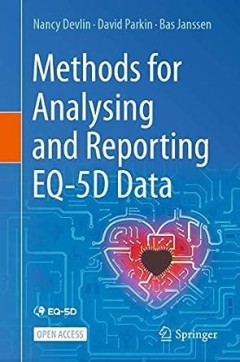Filter by

Career and Career Guidance in the Nordic Countries
Career brings together individuals’ paths through life, learning and work. It describes how people interface with social institutions including the education system, employers, civil society and the state. Because our careers are socially and culturally embedded it matters where they are enacted. Career and Career Guidance in the Nordic Countries explores what kind of context the Nordic regio…
- Edition
- Volume: 9
- ISBN/ISSN
- 978-90-04-42809-6
- Collation
- -
- Series Title
- -
- Call Number
- -

Towards a Comparative Analysis of Social Inequalities between Europe and Lati…
This open access volume identifies the common and specific aspects of social mechanisms that generate inequalities, through comparative analyses of different dimensions in which inequalities are expressed. It includes studies on social inequalities in 5 European and 5 Latin American countries, along 11 thematic axes: inequalities in the labour market and labour trajectories; asymmetries in the …
- Edition
- 1
- ISBN/ISSN
- 9783030484422
- Collation
- XXIII, 480 ill; lamp
- Series Title
- -
- Call Number
- -

Research Ethics for Students in the Social Sciences
This open access textbook offers a practical guide into research ethics for undergraduate students in the social sciences. A step-by-step approach of the most viable issues, in-depth discussions of case histories and a variety of didactical tools will aid the student to grasp the issues at hand and help him or her develop strategies to deal with them. This book addresses problems and questions…
- Edition
- 1
- ISBN/ISSN
- 9783030484156
- Collation
- XVI, 287 ill; lamp
- Series Title
- -
- Call Number
- -

Dynamic Analysis of Offshore Wind Turbine Foundations in Soft Clays
This open access book. This book primarily introduces the dynamic analysis of typical offshore wind turbines foundations in soft clays under marine environmental loads. The dynamic behaviors and bearing performance of offshore wind turbines foundations will be interesting to students and researchers in offshore geotechnical engineering. This book systematically elaborates on numerical analysis …
- Edition
- 1
- ISBN/ISSN
- 9789819794546
- Collation
- X, 254 hlm; ill., lamp.,
- Series Title
- -
- Call Number
- -

A Topos Subverted = Italy in the 20th and 21st century German literary imagin…
What has become of the literary topos “Italy”—once so central to German literature—in the 20th and early 21st centuries? Does it still have a role to play in the German self-understanding and in what way has this role changed? To address these questions, this study focusses on six texts. Each text revises, subverts, and radicalises this literary topos such that it gains new contemporary…
- Edition
- 1
- ISBN/ISSN
- 9783503238064
- Collation
- 182 hlm; ill., lamp.,
- Series Title
- 15
- Call Number
- -

Pflege-Report 2024 = Ankunft der Babyboomer: Herausforderungen für die Pflege
Fragen der Versorgungsqualität gewinnen zunehmend an Bedeutung. Das gilt auch für die pflegerische Versorgung. Der Pflege-Report, der jährlich in Buchform und als Open-Access-Publikation erscheint, beleuchtet im Schwerpunkt 2024 die Ankunft der Babyboomer in der Pflege und stellt die Frage, welche Pflegestrukturen für diese Generation zu gestalten sind, Zudem präsentiert der Pflege-Report…
- Edition
- 1
- ISBN/ISSN
- 9783662701898
- Collation
- XVII, 326 hlm; ill., lamp.,
- Series Title
- -
- Call Number
- -

An Introduction to Cognitive Economics = The Science of Mistakes
This book introduces readers to “cognitive economics,” a rapidly emerging interdisciplinary science built on economic, psychological, and data scientific foundations. Throughout the book, economist Andrew Caplin provides new approaches to help scholars collaborate and solve problems that can shape economic outcomes and bridge the gap between theoretical knowledge and the real world. Divide…
- Edition
- 1
- ISBN/ISSN
- 9783031730429
- Collation
- XI, 158 hlm; ill., lamp.,
- Series Title
- -
- Call Number
- -

Methods for Analysing and Reporting EQ-5D Data
This open access book is the first published guide about how to analyse data produced by the EQ-5D, one of the most widely used Patient Reported Outcomes questionnaires world wide. The authors provide practical, clear and comprehensive guidance in five concise chapters. Following an overview of the EQ-5D and its analysis, we describe how the questionnaire data – the EQ-5D profile and EQ VAS …
- Edition
- 1
- ISBN/ISSN
- 9783030476229
- Collation
- XV, 102 ill; lamp
- Series Title
- -
- Call Number
- -

Lives in Peace Research = The Oslo Stories
This open access book explains how PRIO, the world’s oldest peace research institute, was founded and how it survived through crises. In this book, twenty-four of its researchers and associates, including Johan Galtung, Ingrid Eide, and Mari Holmboe Ruge, who founded the institute back in 1959, tell the stories of their roles in inventing and developing peace research. They reflect on their p…
- Edition
- 1
- ISBN/ISSN
- 9789811647178
- Collation
- XX, 508 ill; lamp
- Series Title
- 3
- Call Number
- -

Secularization and China's Modernization
This open access book examines from the perspective of secularization. Since the publication of Max Weber's Protestant Ethics and the Spirit of Capitalism, how to realize modernization in developing countries has become an urgent problem to be demonstrated. Secularization has becoming endogenous power for Chinese modernization procedure, especially since 1978. However, to understand the foundat…
- Edition
- 1
- ISBN/ISSN
- 9789819780624
- Collation
- XI, 402 hlm; ill., lamp.,
- Series Title
- -
- Call Number
- -
 Computer Science, Information & General Works
Computer Science, Information & General Works  Philosophy & Psychology
Philosophy & Psychology  Religion
Religion  Social Sciences
Social Sciences  Language
Language  Pure Science
Pure Science  Applied Sciences
Applied Sciences  Art & Recreation
Art & Recreation  Literature
Literature  History & Geography
History & Geography